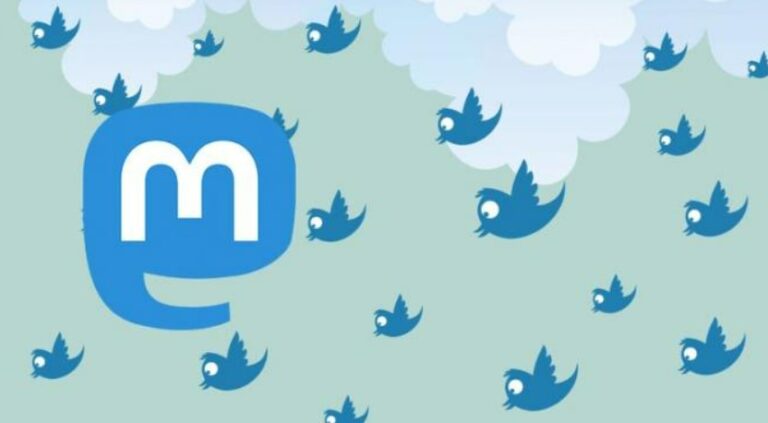It has now been a few weeks since we witnessed Elon Musk’s triumphant entry into Twitter HQ holding a sink. Since then, many things have already changed: first, the fleet of employees following the blanket dismissal of over 70 people.
And, second, but not least, the so-called Elon Effect. A lot of people are leaving the social network following the statements and moves of the eccentric billionaire. Who has established a change of course for Twitter in terms of so-called censorship.
And what is the alternative to Twitter? Mastodon, an app that was almost unknown until now. But which is now preparing to welcome all those who do not agree with Twitter’s anarchic turn. Let’s see what it is all about and why Mastodon is now Twitter alternative.
Table of Contents
Getaway from Twitter : what is Mastodon
Mastodon presents itself as a decentralised and open source social network.
And, at least according to CEO Eugen Rochko, there was a peak in registrations between 20 and 27 October this year – with over 18,000 new accounts. Which, to date, brings the number of subscribers to over 7 million. In short, talking figures, which tell us of a substantial migration in anticipation of the new policies to be adopted by Twitter.
Mastodon is part of the ‘Fediverso’, a network comprising several platforms all registered on the same hosting. This means independent cores that nevertheless communicate with each other.
The social network is configured as an open source and decentralised platform. Data is not collected, the feed is homogeneous and follows the user’s interests without the interlude of suggestions or promotions.
Mastodon’s ultimate goal is not to make money, but to connect the digital world. Which means that Mastodon consists of several communities, each with its own moderation rules.
This platform has existed for almost six years, but more has started to be talked about it in the wake of Elon Musk’s purchase of Twitter. Because many see in Mastodon precisely an escape route to the anarchy of content that will – it seems – soon be established on Twitter.
Instead, Mastodon operates on decentralised servers, each of which is free to choose its own code of conduct. Just like a social network within a social network. There will be more ‘libertine’ communities and others that will impose a strict code of conduct. And everyone will be free to choose the one that best suits their needs.
Why are people moving from Twitter?
In the last few days, the news that reported a decidedly ironic episode following Elon Musk’s purchase of Twitter has caused a stir. The billionaire himself is said to have shared blatant fake news – with a homophobic subtext – regarding the episode involving Nancy Pelosi’s husband in a domestic assault.
For many, this episode is indicative of the future climate envisaged for Twitter. Namely, total freedom to share content, including fake news, hate speech, pornography, and more. All, under the scrutiny of a few moderators with their hands tied. An this is why Twitter users are now looking for an alternative and starting using Mastodon.
“We’ve freed the bird,” Musk had declared after his triumphant entry as Twitter’s new owner, speaking of a total liberation of content.
However, looking at the facts, for many the situation does not look so rosy and simple. Twitter will no longer be listed on the stock exchange and will be transformed into a private company. This means less transparency obligations and less control over the social network’s pragmatic performance.
It is expected that Donald Trump and other personalities will be ‘banned’ from the app for spreading fake news and hate language – at least according to Twitter’s old policies. Not least because the announcement of greater freedom of content was mainly rejoiced by supremacists, racists, misogynists, homophobes and all those people who have so far been banned by the main social network.
This is not mere speculation: according to an analysis by the ‘Network Contagion Research Institute’, since 29 October, hate speech towards various minorities and populations on social networks has increased by 500%. This is another reason why many users choose to use Mastodon as an alternative to Twitter.












